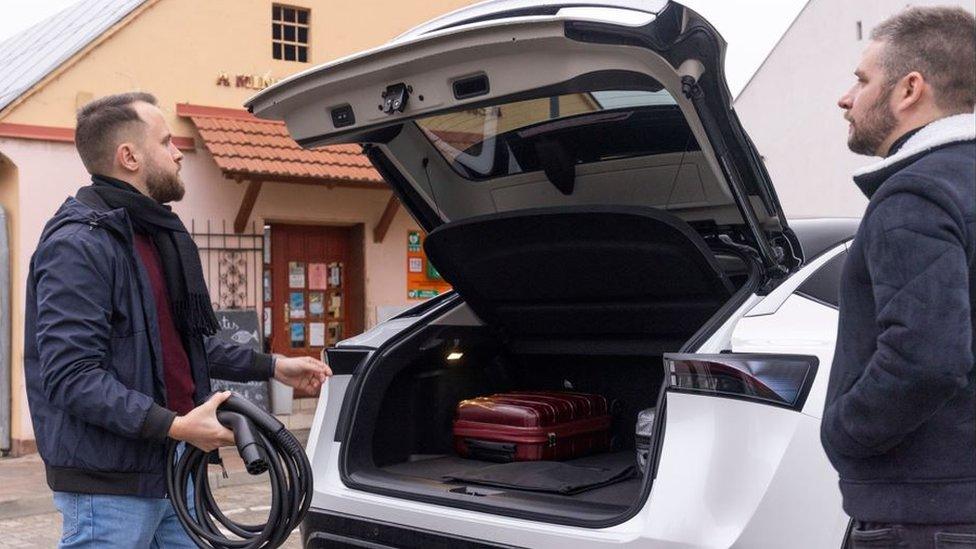Electric car infrastructure in Northern Ireland is 'bottom of the league'
- Published
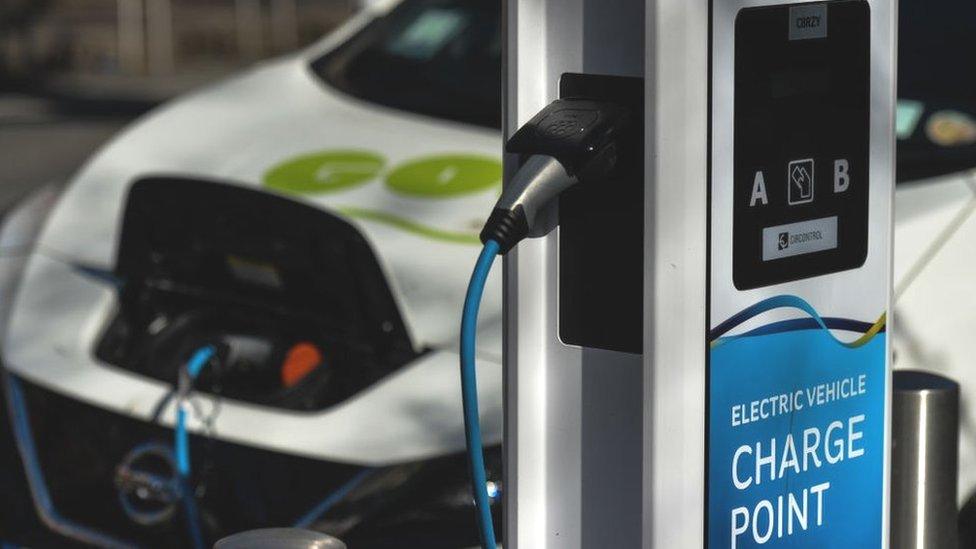
One EV driver says finding a public charge point can be "pot luck"
A growing number of people in Northern Ireland would consider buying an electric vehicle (EV), a survey has found.
The Department of Infrastructure report said 37% people would either definitely or strongly consider buying one, up from 25% in 2019/2020.
But there are warnings that demand for public charging points in Northern Ireland is outstripping supply.
One driver, from Belfast, said finding charge points can be pot luck.
Peter Canavan has recently bought a plug-in hybrid.
He said he could not consider going fully electric as he believes "we're not even close" to having the infrastructure needed in Northern Ireland.
"At the minute the infrastructure isn't there even for the amount of cars we have now," he said.
"Chargers are quite far apart, dispersed. It's not that you can go somewhere and find there's 20 available.
"You can have people going to Belfast and driving round and round looking for one.
"If you are doing a longer journey, you do have to plan where you can go to get a charger. People are sometimes waiting an hour just to get one.
"There's a lot of people who'll go to hybrid instead of full electric for that reason."
'Parked there all day'
The 42-year-old works in Belfast city centre but said he was often unable to find an available charge point.
"It's pot luck," he said.
"You don't know if someone is going to be parked there all day.
"At times I've been able to find one at lunchtime but at times I haven't.

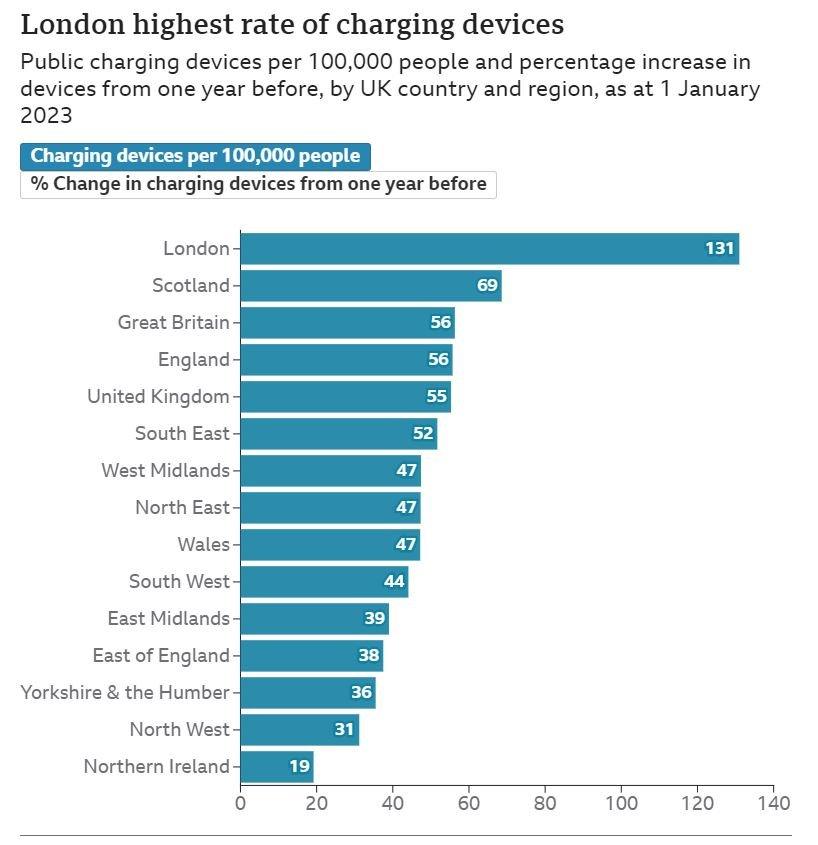
Northern Ireland has the lowest rates of public charging devices for EVs in the UK.
Data recently released from the UK's Department for Transport found there were 19 charging devices per 100,000 people.
In Scotland, the figure is 69 while in Wales it is 47.
Across Northern Ireland, there are around 337 public charge points.
Gordon McGowan, from Donegal in the Republic of Ireland, recently visited friends in Belfast with his wife and two-year-old daughter.
He owns a fully-electric car but after struggling to find public charging points, he said he would not make the trip again in that car.
"It's too stressful and it's too much hassle," he said.
In his search for charge points in preparation for the return journey, he said some were broken and others had cars parked there for long periods of time.
"You're taking a chunk out of your evening trying to find a charger or waiting for somebody to move," he said.
"We should've been home by 5pm, but it was closer to 8pm because of the wait."
In the Republic of Ireland, it costs drivers money to use charge points for a period of up to 45 minutes. After that, drivers are charged an overstay fee.
But in Northern Ireland, many of the public charge points are free to use.
'Bottom of the league'
Mark McCall, chair of the Electric Vehicle Association NI (EVANI), said demand for the chargers had been outstripping supply for years.
"Northern Ireland is by every metric bottom of the league," he said.
"But we have to balance that by saying that after six years of seeing little to no change we recently saw a doubling of the amount of rapid chargers in Northern Ireland.
"It shows that the direction of travel is positive."
He said drivers parking at free charge points for long periods of time was a cause of frustration for those with EVs.
"It's definitely not working," he said.
"Free charge points were an incentive in the early days and encouraged uptake, but we're at the point now when we need to introduce charges."
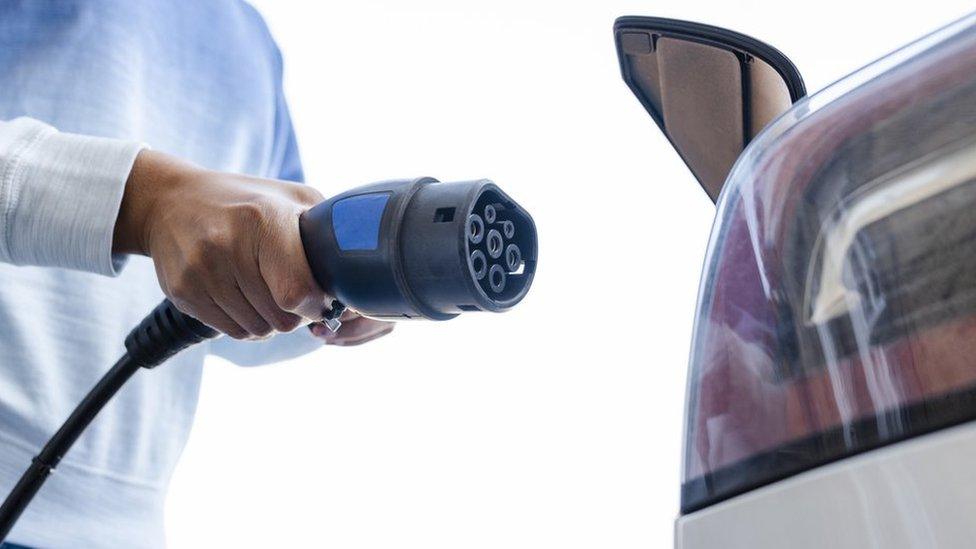
The industry body warns there is a divide between those who can charge at home and those who cannot
ESB, which operates more than half of the public charging points in Northern Ireland, said the network remained free in the short term.
"ESB's charging network is exposed to price changes in the wholesale energy market and as such, we keep our operational costs under constant review," it said.
But introducing fees could mean those who are unable to charge from home pay more.
"There's a divide now between those that can charge at home and those who can't," Mr McCall said.
"If you can charge at home you can run your EV extremely affordably.
"If you have to always charge in a public charge point, it can be much more money."
The association is calling for a discount to be applied at night on public chargers so drivers can use the facilities at a cheaper rate.
The Department for Infrastructure said publicly accessible EV charge points were provided and operated on a commercial basis.
It said a taskforce was set up by the department to help set out a clear action plan for Northern Ireland's EV infrastructure requirements.
In an action plan published last November, external, the task force recommended a focus on developing a rapid-charge network to facilitate 1,000 chargers by 2025 and to ensure no resident is more than 25 miles from a rapid charger.
Related topics
- Published29 January 2023
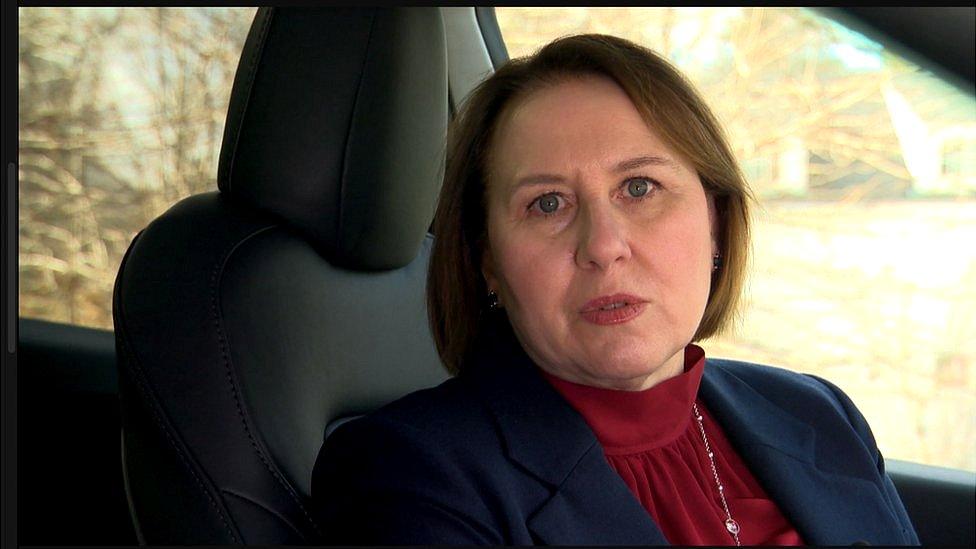
- Published26 January 2023
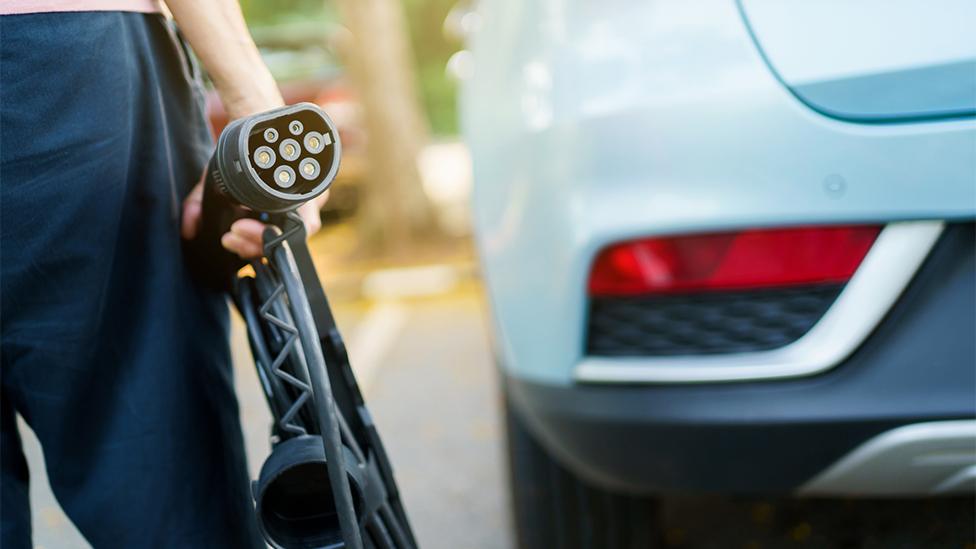
- Published5 January 2023
